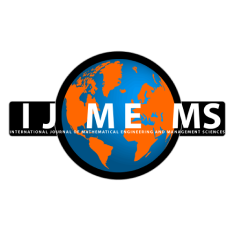N. Micheal Mathavavisakan
Department of Mathematics, School of Advanced Sciences, Vellore Institute of Technology, Vellore, Tamil Nadu, India.
K. Indhira
Department of Mathematics, School of Advanced Sciences, Vellore Institute of Technology, Vellore, Tamil Nadu, India.
Aliakbar Montazer Haghighi
Department of Mathematics, Prairie View A&M University, Prairie View, Texas, USA.
DOI https://doi.org/10.33889/IJMEMS.2025.10.4.045
Abstract
As queueing theory and modeling deal with queue length, waiting time and busy period, that all affect costs for an in institution and/or a busing corporation, the optimization plays a crucial role in such models. This paper focuses on the performance modeling and optimal configuration of a single-server retrial queue with recurrent customers and a standby server, operating under Bernoulli working vacation conditions. The primary aim of the paper is to analyze the dynamics of this queueing model to achieve minimal operational costs while ensuring high performance. Using the supplementary variable technique (SVT), the probability generating functions (PGFs) and steady-state probabilities for the system's states, have been obtained enabling the development of comprehensive performance measures. These measures were rigorously validated through numerical examples. To complement the performance analysis, a cost function was formulated and optimized using advanced techniques, including the grey wolf optimizer (GWO), bat algorithm (BA), whale optimization algorithm (WOA), and cat swarm optimization (CSO). The results revealed that these algorithms successfully minimized operational costs while maintaining optimal system efficiency.
Keywords- Recurrent customer, Retrial queue, Working vacation, Heuristic optimization.
Citation
Mathavavisakan, N. M., Indhira, K., & Haghighi, A. M (2025). Swarm based Heuristic Optimization of the Recurrent Customers and Standby Server Under General Retrial Times. International Journal of Mathematical, Engineering and Management Sciences, 10(4), 931-964. https://doi.org/10.33889/IJMEMS.2025.10.4.045.



